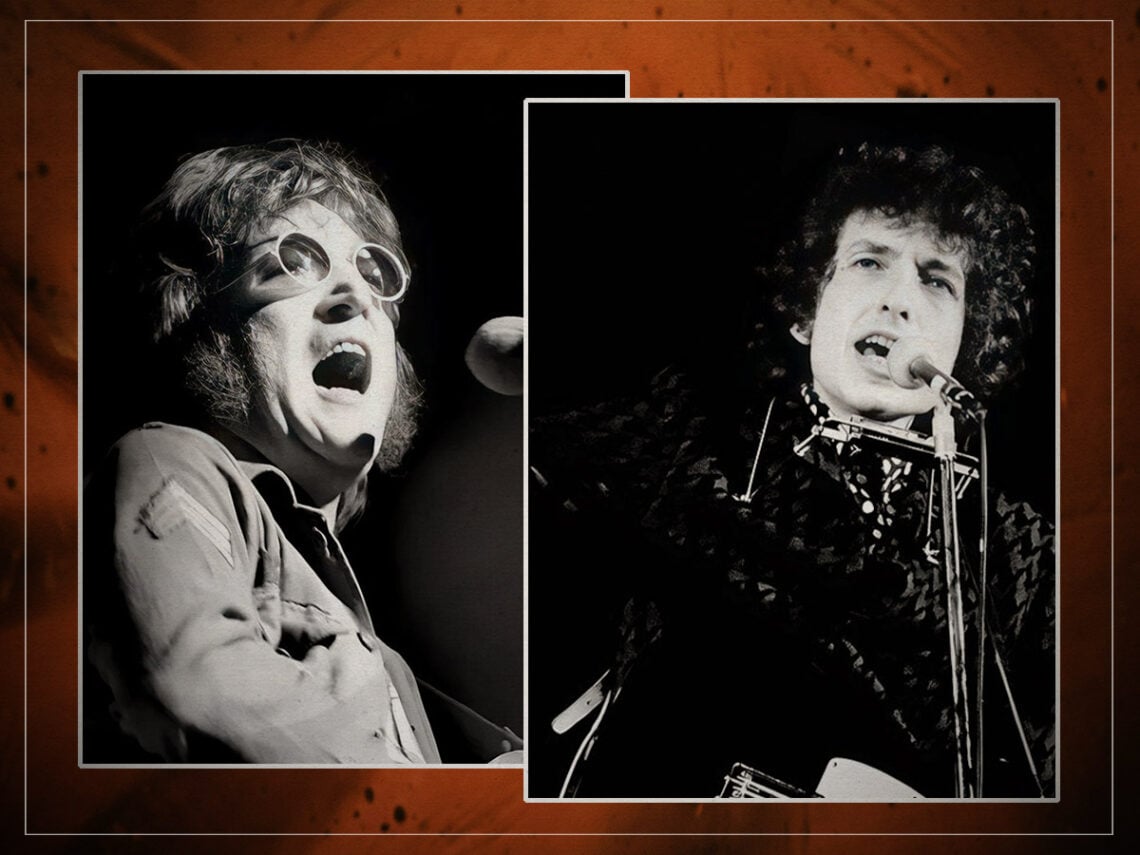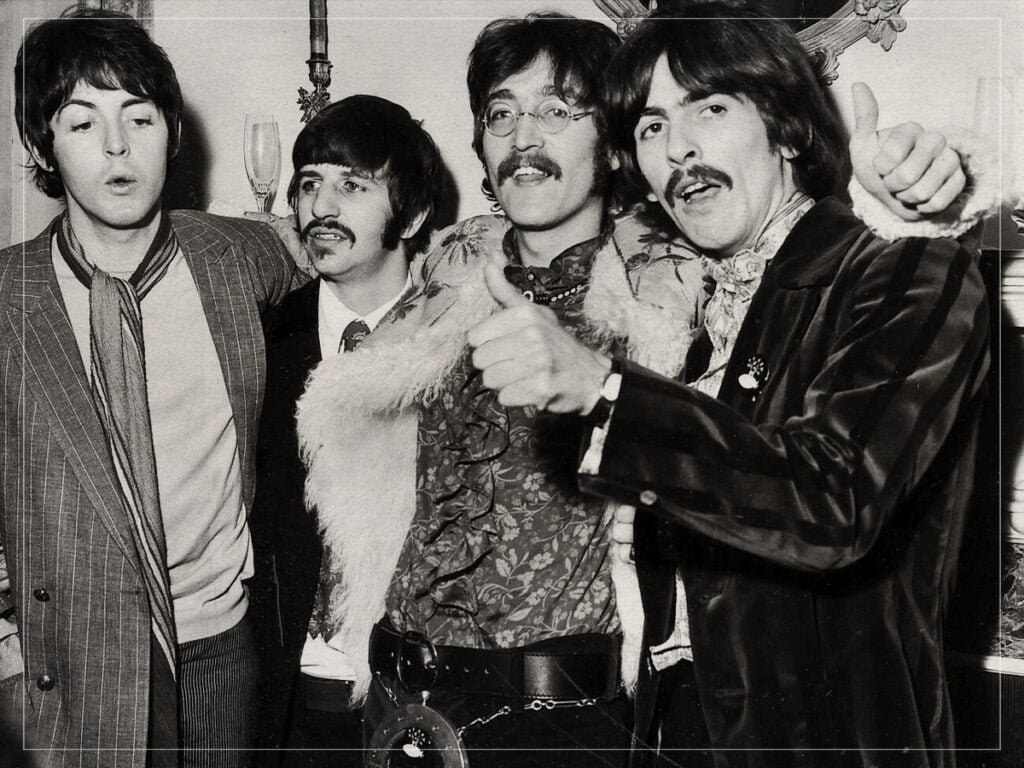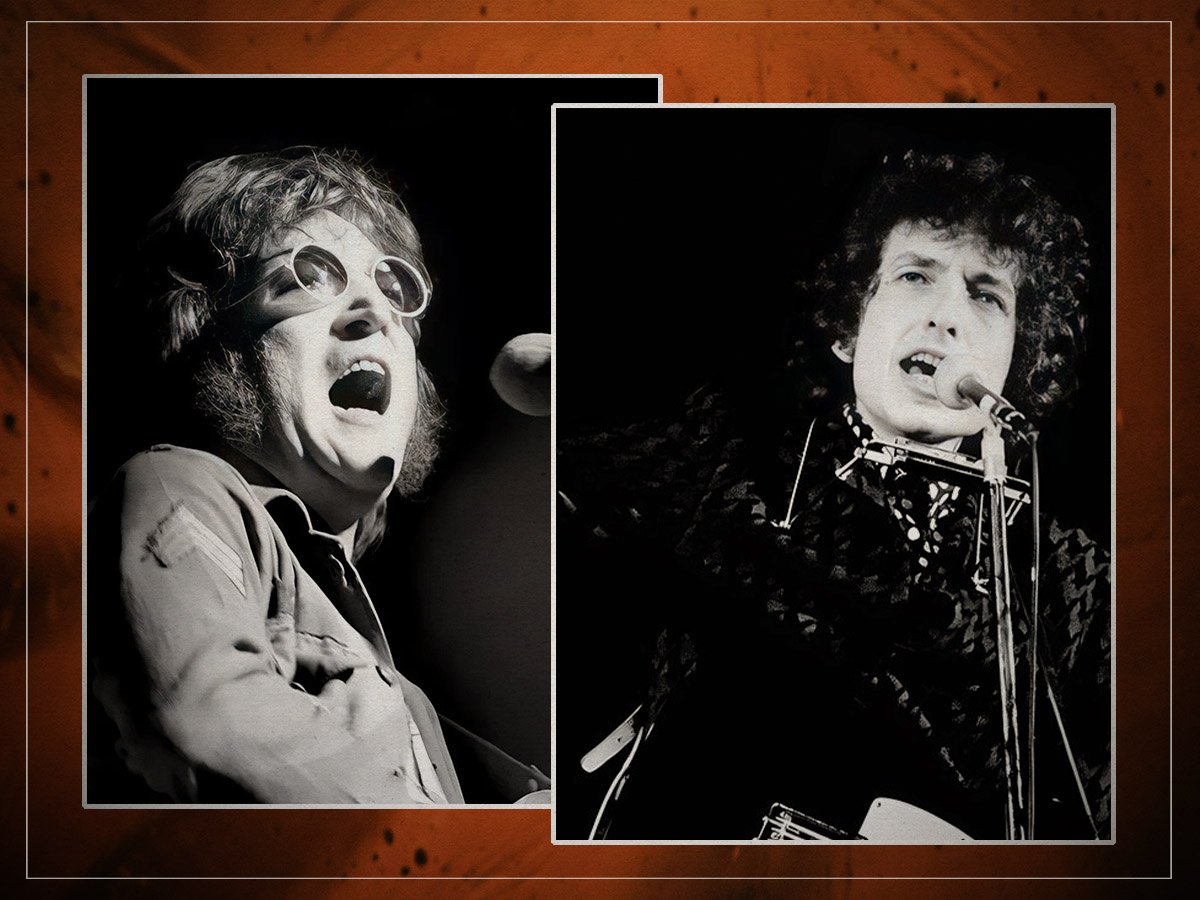
(Credits: Far Out / Alamy / Bent Rej)
Tue 4 November 2025 19:11, UK
The world of music is built on the backs of incredible collaboration. Partnerships and bands coming together to create music, even if not directly linked with one another, is why the art form is so vibrant. Even outside influences can infiltrate a great songwriter. Despite this, for a prolonged period of time, Bob Dylan’s relationship with John Lennon was fractious, to say the very least.
While the two musicians initially got off to a genial start, a period when Lennon began borrowing from Dylan’s playbook with The Beatles and Dylan likewise tried to replicate their mainstream sound, the singer-songwriter believed it wasn’t only he who fell victim to the Liverpudlian’s dirty tactics.
Their first meeting between the two occurred in a New York hotel in 1964, when Dylan introduced The Beatles to marijuana, inadvertently altering their minds and songwriting process. On Rubber Soul, Lennon started to express his inner Dylan, most notably on ‘Norwegian Wood’, leading the American to respond with the sniping ‘Fourth Time Around’.
From that moment on, they were never the closest of associates despite Dylan forming a friendship with George Harrison, and the two later became bandmates in the Travelling Wilburys. However, while Lennon and Dylan likely would never have been seen dining together, the competitive edge to their relationship was born out of mutual respect.
In 2008, Dylan was tasked with creating a compilation album titled The Music That Matters To Me, featuring a selection of his favourite songs, including one track he believes inspired a classic by The Beatles.
 Paul McCartney, Ringo Starr, John Lennon and George Harrison of The Beatles. (Credits: Far Out / Alamy)
Paul McCartney, Ringo Starr, John Lennon and George Harrison of The Beatles. (Credits: Far Out / Alamy)
In the liner notes, Dylan honestly explained the credentials required for the songs to be included on the CD: “When I was asked to put together this collection of songs, I wasn’t sure what to do,” he said. “So I grabbed a bunch of things I was into recently.”
Dylan has been routinely asked about his favourite music of all time, and the songwriter has, in general, tried to ignore such a question. He has ducked and dodged, and this is his reasoning: “Some people have favourite songs, but I’ve got songs of the minute – songs that I’m listening to right now. And if you ask me about one of these songs a year from now, I might not even remember who did it, but at the moment it’s everything to me.”
It turns out, Bob Dylan, the Nobel Prize winner, is just a trendy kid who only cares about what’s the latest thing on his turntable. He added: “There’s a lot of different ways a record can get under your skin. Sometimes it’s the way they sound, sometimes it’s the words. Maybe it’s a guitar riff or horn line or maybe you feel like the singer is talking right to you.
Some people say it’s chemistry but chemistry is too much of a science. A great record is more like alchemy. Here’s a bunch of folks who somehow managed to turn lead into gold for a couple of minutes. I hope you enjoy them as much as I do.”
The first track Dylan chose to shine a light on was ‘Doo Unto Others’ by Pee Wee Crayton, a song released in 1954. Other artists who have taken it on in later years include Billy Bragg, and Dylan believes it strongly influenced The Beatles’ hit ‘Revolution’, even if Lennon didn’t realise it himself.
Dylan speculated in the album sleeve: “I bet that John Lennon heard this record at a party once and probably didn’t even know who did it, but that guitar just stuck in his head. The song was released in 1954. The ‘B’ side of ‘Hey Jude’ by The Beatles is called ‘Revolution’, and it was released in 1968. The start of both of these recordings is identical.”
For Lennon, though, the track was far more important: “I wanted to put out what I felt about revolution. I thought it was time we f*g spoke about it, the same as I thought it was about time we stopped not answering about the Vietnamese war when we were on tour with Brian Epstein and had to tell him, ‘We’re going to talk about the war this time, and we’re not going to just waffle.’ I wanted to say what I thought about revolution.”
“I had been thinking about it up in the hills in India,” he continued. “I still had this ‘God will save us’ feeling about it, that it’s going to be all right. That’s why I did it: I wanted to talk, I wanted to say my piece about revolution. I wanted to tell you, or whoever listens, to communicate, to say ‘What do you say? This is what I say”
In his analysis, the legendary singer-songwriter hits the nail on the head, and if one listened to ‘Revolution’ side-by-side with ‘Do Unto Others’, it’d be impossible to tell them apart. While this was likely an act of subconscious plagiarism rather than deliberate on Lennon’s behalf, there’s little doubt that it was entirely coincidental both he and Crayton stumbled upon the same introduction.
Listen to both songs below.
Related Topics
The Far Out Beatles Newsletter
All the latest stories about The Beatles from the independent voice of culture.
Straight to your inbox.

